Top Influential Political Scientists Today
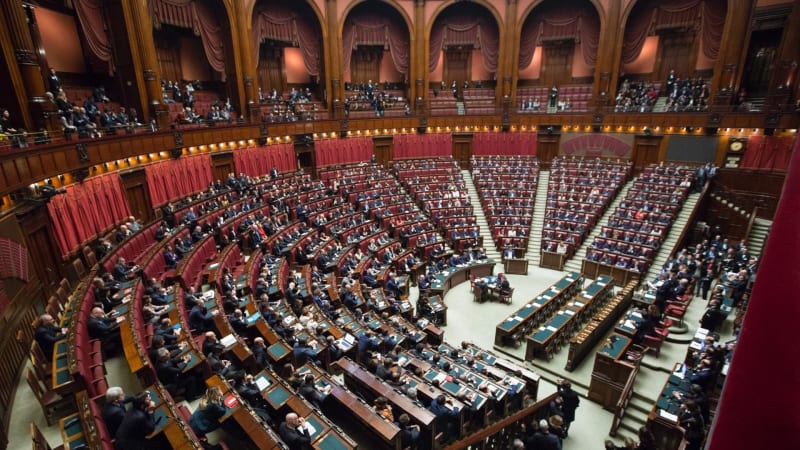
In such fraught times, it is not hard to see the importance and relevance of the study of political science and its sister discipline, international relations. Political scientists help us to better understand our own political systems, identify the weaknesses in our systems, and propose ways to improve them. We have identified major contributors to the field of political science who work every day to advance the field and help prepare the next generation of political scholars.
Considering a degree in political science? Visit Our Political Science Page, where you’ll find the best political science colleges and universities, career information, interviews with top political scientists, influential scholars in the field of political science, great books, a history of the discipline, and more.
Credited as being the first political scientist, Aristotle was the first to use empirical evidence as a method for studying political behaviors and systems. Since then, countless scholars and thinkers have wrestled with the complexities of human governance and politics. The understanding of political science helps leaders and policy makers to make data-driven decisions, based on an understanding of the past, present, and future implications in play.
Political scientists work to solve political problems using objective, analytical, comparative, and historical methods of analysis. They are skilled practitioners in spotting trends and predicting political behavior. The work of political scientists is never done. Emerging technologies and geopolitical changes reshape the political landscape every day. Political scientists are able to look beyond the microcosm of this moment, to understand the challenges within a larger context, and are instrumental in helping officials make appropriate decisions on issues as diverse as foreign aid, immigration, human rights, and welfare reforms.
If you are interested in a degree in public administration, take a look at our ranking of the Best Online Bachelor’s Degrees in Public Administration.
In what follows, we look at influential political scientists over the last decade. Based on our ranking methodology, these individuals have significantly impacted the academic discipline of political science within 2010-2020. Influence can be produced in a variety of ways. Some have had revolutionary ideas, some may have climbed by popularity, but all are academicians primarily working in political science. Read more about our methodology.
Note: This isn’t simply a list of the most influential political scientists alive today. Here we are focused on the number of citations and web presence of scholars in the last 10 years. There are other highly influential scholars who simply haven’t been cited and talked about as much in the last 10 years, whereas some new faces have been making a splash in the news, speaking events, and publishing, publishing, publishing. Our AI is time sensitive. To find some of the big names you might have expected to see here, we encourage you to use our dynamic ranking system and check influence over the past 20 and 50 years.
Top Influential Political Scientists 2010-2020
Want more? Discover influential political scientists throughout history:Of All Time | Last 50 Years | Last 20 Years | Black Political Scientists | Women Political Scientists Note: The time-specific links above take you to rankings that dynamically change as our AI learns new things!
1.Donald Green
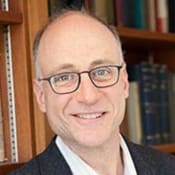
(1961 - )
Areas of Specialization: American Politics, Political Methodology
Donald Green is a political scientist at Columbia University who studies public opinion and political behavior. He earned a B.A. in political science and history at the University of California, Los Angeles, and an M.A. and Ph.D in political science at the University of California, Berkeley. He uses quantitative research methods, especially field experiments, to study voting, political party affiliation, campaign finance, prejudice, and mass media.
His body of work includes over 100 scholarly publications, including Partisan Hearts and Minds (written with Brad Palmquist and Eric Schickler) and multiple editions of Get Out the Vote: How to Increase Voter Turnout, (written with Alan Gerber). Many of his works discuss the promise and application of experimental research methods, including his textbook Field Experiments: Design, Analysis, and Interpretation, (written with Alan Gerber).
Perhaps the coolest thing about Donald Green is his affinity for creating board games. He invented such games as Mouse Island, Razzle Dazzle, and the award-winning, OCTI, winner of Best Abstract Strategy Game of the Year in 1999.
He was elected to the American Academy of Arts and Sciences in 2003. He served as director for Yale University’s Institution for Social and Policy Studies from 1996-2011. He was appointed as the John William Burgess Professor of Political Science at Columbia University in 2016 and was soon thereafter honored as a Faculty Advisor of the Year by the Graduate Student Council.
See our Interview with Donald Green.
2.Alina Mungiu-Pippidi
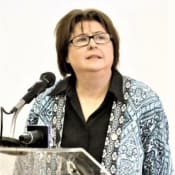
(1964 - )
Areas of Specialization: Goverance, Freedom of Information, Anti-Corruption
Alina Mungiu-Pippidi is a political scientist, journalist, writer and academic researcher from Romania, serving as the chair of the European Research Centre for Anti-Corruption and State Building and the co-director of the EU’s FP7 project, ANTICORRP. She earned a degree from the Faculty of Medicine at the University of Iaşi before earning a doctorate in social psychology. She studied at Harvard University as a Fulbright fellow and as a Shorenstein fellow. She is the founder of Romania’s most prolific think tank, the Romanian Academy Society, which has promoted greater freedom of information, flat taxation and methods for achieving European Union membership. She also started an organization that attempts to clean up the pool of political candidates before they can get into office, called the Coalition for a Clean Parliament.
She wrote a play called The Evangelists, which created controversy for its depiction of the relationship between Jesus Christ and Mary Magdalene. Not all of her writings have been controversial, and her books, The Quest for Good Governance: How Societies Develop Control of Corruption and A Tale of Two Villages: Coerced Modernization in the East European Countryside, were well-received analyses of systems of governance.
She is the editor of the Romanian Journal of Political Science.
3.Samantha Power
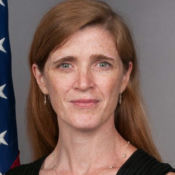
(1970 - )
Castleknock, Ireland
Areas of Specialization: Democracy & Governance, Human Rights, International Relations & Security
Samantha Power is director of the new International Peace and Security Project at Harvard Kennedy School, member of the Board of Directors at the International Refugee Assistance Project, and joint faculty for Harvard’s Law School and Kennedy School. She earned a B.A. from Yale University and a J.D. from Harvard University. It is hard to overstate Samantha Power’s influence on global affairs.
After a time as a war correspondent in Yugoslavia, she returned to Harvard University to be the Founding Executive Director of the Carr Center for Human Rights Policy. From there, she began working with then U.S. Senator Barack Obama, advising him on foreign policy. From there, she has served as foreign policy advisor to his presidential campaign, his transition team, on his National Security Council as Special Assistant to the President, and Senior Director for Multilateral Affairs and Human Rights, and United States Ambassador to the United Nations, where she remained until she was replaced by Nikki Haley.
In her role as advisor to the President, she lobbied for humanitarian intervention for Libya and was criticized for her desire to use the United States military to prevent atrocities, rather than merely for defense, although once she moved on to the United Nations, she lost some of that idealism.
4.Bernard Norman Grofman
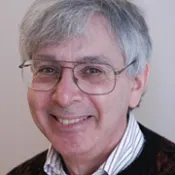
(1944 - )
Houston, Texas, USA
Areas of Specialization: Public Choice, Formal Democratic Theory, Politics of Small Groups, Voting Rights
Bernard Norman Grofman is the Jack W. Peltason Endowed Chair Distinguished Professor of Political Science and adjunct professor of economics for the University of California, Irvine. He earned a B.S. in mathematics, an M.A. and Ph.D. in political science from the University of Chicago.
He has served as a special master to redraw congressional districts in Virginia after a federal judge found evidence of wanton gerrymandering throughout the state, intended to disenfranchise African-Americans. He served in this role both in 2015 and 2018.
He has written numerous books and over 200 articles. Among his books are Political Science as Puzzle Solving and Information, Participation, and Choice: An Economic Theory of Democracy in Perspective.
He has been a visiting scholar at the University of Bologna, Nuffield College at Oxford University, Kansai University, University of Mannheim, and the University of Paris. He has been a short-term scholar-in-residence for the Tilburg University, the University of Victoria, the Institute for Advanced Study, the Central European University, the University of Caen and the University of Konstanz.
Most recently he has been a scholar-in-residence at the University of Luneburg and the Juan March Institute of Juan Carlos III University.
5.Kristian Skrede Gleditsch

(1971 - )
Oslo, Norway
Areas of Specialization: International Politics, Peace Research
Kristian Skrede Gleditsch is Regius Professor at the University of Essex. He earned a cand.mag (equivalent to a Master of Arts) degree at the University of Oslo and a Ph.D from the University of Colorado. He is an expert in topics such as non-violent demonstration, democracy and conflict.
He has a number of publications, including All International Politics is Local: The Diffusion of Conflict, Integration, and Democratization, and, in 2013, he published Inequality, Grievances and Civil War, which he co-wrote with Lars-Erik Cederman and Halvard Buhaug. Inequality was recognized in 2015 with the International Studies Association Annual Best Book Award.
Gleditsch is a recipient of the “Young Excellent Researcher” grant, which he held from 2007-2011. He has been part of the Peace Research Institute in Oslo since 2003 and a member of the board and former head of the Conflict Processes Section for the American Political Science Association. He is a fellow of the U.K. Academy of Social Sciences and a member of the Network of European Peace Scientists and of the International Peace Science Society.
His most recent article, titled, “A Two-Stage Approach to Civil Conflict: Contested Incompatibilities and Armed Violence”, was co-written with Henrikus Bartusevicius, and published in 2019.
6.Alexander J. Motyl

(1953 - )
New York, New York, USA
Areas of Specialization: Soviet and Post-Soviet Politics, Comparative Politics, Revolutions
Alexander J. Motyl is a recognized expert on Russia, Ukraine and the Soviet Union, as well as a professor of political science for Rutgers University. He earned a B.A. in history, an M.Phil and a Ph.D in political science from Columbia University. In addition to his extensive work on Russia and Ukraine, he is also an accomplished fiction writer, artist, and poet.
Among his artistic pursuits are such novels as Fall River, The Jew Who Was Ukrainian, and Who Killed Andrei Warhol. He is a painter and poetry reader in New York City.
In Imperial Ends: The Decline, Collapse, and Revival of Empires, he suggests that the political structure of empires tended to have a core and a periphery, but had centralized governance at the core, with little to no interrelationships along the periphery. Power existed at the center only. In his study of these imperial structures, he examined the Akkadian Empire, Russian Empire, Aztec Empire, and Mongol Empire. Among those empires, he found three kinds of structures, continuous (continental), discontinuous (intercontinental), and hybrid (a combination of both). He is also the author of The Turn to the Right: The Ideological Origins and Development of Ukrainian Nationalism, 1919-1929.
See our Interview with Alexander Motyl
7.John Mearsheimer

(1947 - )
Brooklyn, New York, USA
Areas of Specialization: International Relations Theory, International Security, Deterrence Theory, Offensive Neorealism
John Mearsheimer is the R. Wendell Harrison Distinguished Service Professor at the University of Chicago. He served for five years as an officer of the U.S. Air Force after graduating from the United States Military Academy at West Point. While serving, he graduated from the University of Southern California with a master’s degree in International Relations. He went on to earn a Ph.D in government from Cornell University.
He is well known for his views on nuclear proliferation and the Middle East. He has held controversial positions on the use of nuclear deterrence (He has advocated for the ongoing nuclearization of Ukraine and Germany as a deterrence against future Russian aggression in the region.
His two most recent books are Why Leaders Lie: The Truth About Lying In International Politics from 2011, and The Great Delusion: Liberal Dreams and International Realities, published in 2018. Although sometimes criticized for his views, his ability to inspire thoughtful discussion about challenging issues has advanced critical evaluation of complex issues such as Gaza and the West Bank, nuclear proliferation in India, and global order. As a political scientist, Mearsheimer sees himself as an offensive neorealist as it pertains to how he views interactions among global powers.
Mearsheimer was recently awarded the James Madison Lecture Award by the American Political Science Association which recognizes an American political scientist that has made a distinguished scholarly contribution to political science. In conjunction with that award, Mearsheimer delivered the lecture, Liberalism and Nationalism in Contemporary America which will be published in an upcoming edition of PS: Political Science & Politics.
See our Interview with John Mearsheimer
8.Stephen Walt

(1955 - )
Los Alamos County, New Mexico, USA
Areas of Specialization: International Relations and Security, Military Strategy, International Relations
Stephen Walt is professor of international affairs at Harvard University’s Kennedy School of Government. He earned a B.A. from Stanford University and an M.A. and Ph.D from the University of California, Berkeley. A scholar of the realist school, he is the author of balance of threat theory (as opposed to conventional balance of power theory).
Among the books he has written are, The Origins of Alliances, Taming American Power, and, in 2018, The Hell of Good Intentions: America’s Foreign Policy Elite and the Decline of U.S. Primacy. Walt is known to be critical of America’s propensity for military intervention, and has wondered why it is that American citizens find it so difficult to approve funding for improvements to public infrastructure, schools and health care, but don’t question how much is spent to prop up world governments.
He also points out what he sees as the flaw of American foreign policy-that it is too prone to overestimate threats (perhaps a reflection of the trauma of September 11, 2001), and that it is far too biased towards activism. Walt has been a fellow of the American Academy of Arts and Sciences since 2005.
See our Interview with Stephen Walt
9.Cass Sunstein

(1954 - )
Concord, Massachusetts, USA
Areas of Specialization: Law and Public Policy, Constitutional Law
Cass Robert Sunstein is the Robert Walmsley University Professor at Harvard Law School and former United States Administrator of the Office of Information and Regulatory Affairs under President Barack Obama. He earned a B.A. from Harvard College, and a J.D. from Harvard Law School. While at Harvard, Sunstein was executive editor of the Harvard Civil Rights-Civil Liberties Law Review.
A scholar and teacher of constitutional, environmental, and administrative law, Sunstein has written numerous books, including Infotopia: How Many Minds Produce Knowledge, Radicals in Robes: Why Extreme Right-Wing Courts are Wrong for America, and Are Judges Political? An Empirical Analysis of the Federal Judiciary. He also co-authored Nudge: Improving Decisions About Health, Wealth, and Happiness with colleague Richard Thaler.
As a legal scholar, Sunstein has advocated for a philosophy of judicial minimalism, and a more center-line approach that avoids radical swings in law to the right or left. He has also promoted a re-examination of the First Amendment, feeling that the writers of the First Amendment could not have anticipated the future of communication, suggesting the creation of a “New Deal for speech.”
Sunstein is a corresponding fellow of the British Academy, as well as the U.K.’s National Academy of the Humanities and Social Sciences.
10.Jean Blondel
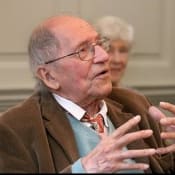
(1929 - )
Toulon, France
Areas of Specialization: Comparative Politics, Political Systems, Presidential Systems
Jean Blondel is Emeritus Professor at the European University Institute and visiting professor for the University of Siena. He has studied at the Institut d’Études Politiques of Paris and earned a B.Litt. from St. Antony’s College at Oxford. After his military service in France, he went on to study at Yale University as an ACLS fellow.
Best known for his scholarship on comparative politics, he has studied the use of cabinets and legislatures, presidential systems, multiparty political systems, and the ways that governments and parties interact. He was awarded the Johan Skytte Prize in Political Science by the Johan Skytte Foundation at Uppsala University. He also has an award named after him, the Jean Blondel Ph.D. Prize, which has been awarded annually since 2003 for the best political science thesis, by the European Consortium for Political Research.
A member of the Royal Swedish Academy of Sciences and Academia Europaea, Blondel has written books such as Voters, Parties, and Leaders: The Social Fabric of British Politics , Comparative Legislatures, Political Parties: A Genuine Case for Discontent, World Leaders: Heads of Government in the Postwar Period, Government Ministers in the Contemporary World and Governing Together: The Extent and Limits of Joint Decision-Making in Western European Cabinets, which was edited with Ferdinand Muller-Rommel.
11.Andrew Gelman

(1965 - )
Philadelphia, Pennsylvania, USA
Areas of Specialization: Applied Statistics, Polling Behavior, Electoral Systems
Andrew Gelman is the director of Columbia University’s Applied Statistics Center and the Higgins Professor of statistics and political science. He earned an S.B. in mathematics and an S.B. in physics from the Massachusetts Institute of Technology and an M.A. and a Ph.D in statistics from Harvard University. He has collaborated with colleagues to create a number of software programs to assist with statistical analysis, including Stan: A C++ and R/Python package for Bayesian sampling and Judgeit: A program for evaluating electoral systems and redistricting plans, for which he won the American Political Science Association research software award in 1992.
Gelman has managed to integrate his expertise in applied statistics and political science to study voter behavior and investigate new ways of using Bayesian statistics to understand statistical trends. He co-wrote Red State, Blue State, Rich State, Poor State: Why Americans Vote the Way They Do and most recently, an article describing research conducted to investigate correlations between diet and nutrition and autism spectrum disorders.
He is an elected member of the International Statistical Institute and the American Statistical Association. In 2016, he was awarded the DeGroot Prize by the International Society of Bayesian Analysis for his work, Bayesian Data Analysis.
12.S. Laurel Weldon
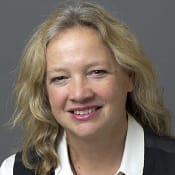
(1968 - )
Areas of Specialization: Violence Against Women, Comparative Public Policy, Social Movements
S. Laurel Weldon is Director of the Purdue Policy Research Institution, Distinguished Professor of Political Science at Simon Fraser University, and a well-known democratic and feminist theorist. She earned a B.A. in political science and sociology, with a minor in philosophy, from Simon Fraser University, an M.A. in political science at the University of Pittsburgh and a Ph.D. in political science from the University of Pittsburgh.
After graduation, she moved on to Purdue University, where she conducted a series of international studies on incidents of violence against women and published a book Protest, Policy and the Problem of Violence Against Women.
She went on to write other books, including When Protest Makes Policy: How Social Movements Represent Disadvantaged Groups, and The Logics of Gender Justice: State Action on Women’s Rights Around the World, which was co-written with Mala Htun. The International Studies Association honored the latter book with the Human Rights Best Book Award, and the former book won the American Political Science Association’s 2012 Victoria Schuck Award.
Weldon’s work has made substantial contributions to the study of domestic violence and the role of women in politics. Her empirical methods were particularly notable, reflecting a research framework rooted in feminist and political theory.
13.Theda Skocpol

(1947 - )
Detroit, Michigan, USA
Areas of Specialization: Civic Engagement, Comparative Sociology, Historical Institutionalism, American Political Development
Theda Skocpol is the Victor S. Thomas Professor of Government and Sociology at Harvard University. She earned a B.A. from Michigan State University, and an M.A. and Ph.D at Harvard University. She went on to become the first female sociologist to achieve tenure at Harvard University.
A scholar of historical institutionalism, comparative sociology, and political science, she has studied the phenomena of social revolutions and impacts on social policy and engagement. Her best known work is States and Social Revolutions: A Comparative Analysis of France, Russia, and China. Her book Protecting Soldiers and Mothers: The Political Origins of Social Policy in the United States was awarded the Woodrow Wilson Award for best political science book in 2003. Four years later, she received one of the most prestigious awards for political science in the world - the Johan Skytte Prize.
Skocpol is a founder and editor of Princeton Studies in American Politics: Historical, Comparative, and International Perspectives, and is a past president of the Politics and History Section of the American Political Science Association. She is a member of the American Philosophical Society and the National Academy of Sciences.
She co-founded the Scholars Strategy Network in 2009, to foster collaboration among scholars and researchers.
See our Interview with Theda Skocpol
14.Margaret Levi
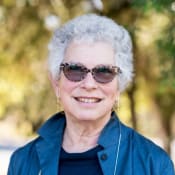
(1947 - )
Areas of Specialization: Comparative Politics
Margaret Levi is Professor of Political Science, the Sara Miller McCune Director of the Center for Advanced Study in the Behavioral Sciences at Stanford University and Senior Fellow at the Woods Institute for the Environment, Stanford University. Levi has also been recognized as the Jere L. Bacharach Professor Emerita of International Studies for the Department of Political Science at the University of Washington. She earned her B.A. from Bryn Mawr College and her Ph.D from Harvard University.
Her research explores the phenomena of membership and the mechanisms determining the perceived legitimacy of government. She seeks to better understand how citizens view their government and how they decide to respect the laws of that government.
She was named a Guggenheim Fellow in 2002. She has been a long-time member of the American Academy of Arts and Sciences, the National Academy of Sciences, and the American Political Science Association, for which she served as president from 2004 to 2005.
Most recently, Levi was honored with the 2019 Johan Skytte Prize, in recognition for her substantial contributions to political science. She is the former director of the CHAOS Center (Comparative Historical Analysis of Organizations and States) and was the Harry Bridges Chair (and Director) for the Harry Bridges Center for Labor Studies.
See our Interview with Margaret Levi
15.Paul Pierson

(1959 - )
Eugene, Oregon, USA
Areas of Specialization: Comparative Public Policy, Public Policy, Political Economy, American Politics
Paul Pierson is the John Gross Endowed Chair of Political Science at the University of California, Berkeley. He earned a B.A. in government from Oberlin College and an M.A., M.Phil., and Ph.D. in political science from Yale University.
His first published book, Dismantling the Welfare State , won the American Political Science Association’s Kammerer Prize for the best work on American national politics. In this work, he analyzes the difficulty of creating change within existing social programs due to the upfront cost and diffuse benefits. Likewise, social programs are hard to abandon once begun, due to the coalition that forms around such programs.
Another of his books, Winner-Take-All Politics , written with Jacob Hacker was recognized as a New York Times bestseller in 2010, and he won the Heinz Eulau Award for the best political science article in the American Political Science Review for “Increasing Returns, Path Dependence, and the Study of Politics”.
His most recent book is American Amnesia: How the War on Government Led Us to Forget What Made America Prosper was published in 2016. His work has proved to be essential in the understanding of the forces at play with governments, social programs and the welfare state.
16.James C. Scott
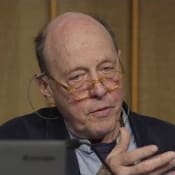
(1936 - )
Mount Holly, New Jersey, USA
Areas of Specialization: Political Economy, Teories of Hegemony and Resistance, Revolution
James C. Scott is a political scientist and comparative scholar of anthropology, and the Sterling Professor of Political Science and Director of the Program in Agrarian Studies at Yale University. He earned a bachelor’s degree from Williams College and an M.A. and Ph.D. in political science from Yale.
After graduation, he earned a Rotary International Fellowship to study in Burma. His honors thesis studied economic development of Burma, which fortuitously opened up opportunities to work with the Central Intelligence Agency as an anti-communist organizer. His early writings were heavily based on archival field research. He studied in Malaysia and Burma, interviewing villagers about the attitudes and conceptions of power and economics.
Among his books are The Moral Economy of the Peasant: Rebellion and Subsistence in Southeast Asia, focused on the nature of patron-client relations of the moral economy, and Weapons of the Weak: Everyday Forms of Peasant Resistance , in which he examines subaltern cultures around the world. His first political science book, Seeing Like a State: How Certain Schemes to Improve the Human Condition Have Failed , he investigates the ways that governments have failed to take the needs and wants of citizens into account in their administration of governmental functions.
17.J. Ann Tickner
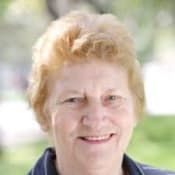
(1937 - )
London, England, UK
Areas of Specialization: International Relations, Peace & Security Studies, Gender Studies
J. Ann Tickner is a distinguished scholar in residence for the School of International Services at American University and Professor Emerita at the University of Southern California. She earned a B.A. from the University of London, an M.A. from Yale University, and a Ph.D from Brandeis University.
Her areas of teaching and scholarship have included peace and security studies, feminist approaches to international politics and global theory. Her written works include: Self-Reliance Versus Power Politics: American and Indian Experiences in Building Nation-States, Gender in International Relations: Feminist Perspectives on Achieving International Security and Gender in International Relations: Feminist Perspectives on Achieving International Security. Her feminist approach to political science challenges conventional notions of gender politics.
J. Ann Tickner was the president of the International Studies Association from 2006 to 2007. She was recognized as one of the Fifty Key Thinkers in International Relations in 1999, and honored with an Eminant Scholar Award by the Feminist Theory and Gender Studies Section of the International Studies Association.
A 2011 TRIP Survey recognized her as #19 on their list of scholars having the greatest impact on international relations over the preceding 20 years.
See our Interview with Ann Tickner
18.Robert Owen Keohane

(1941 - )
Chicago, Illinois, USA
Areas of Specialization: Neoliberal Institutionalism, World Politics, Transnational Relations
Robert Owen Keohane is professor of political science at the Woodrow Wilson School for Princeton University. He earned a B.A. from Shimer Great Books School and a Ph.D. from Harvard University. He held a Guggenheim fellowship and fellowships with the National Humanities Center and the Center for Advanced Study in the Behavioral Sciences.
Best known for his work on neoliberal institutionalism, world politics and transnational relations, he is among the most cited political science writers according to the Open Syllabus Project. He has taught at schools such as Brandeis, Harvard University, Duke University, Swarthmore College, and Stanford University.
His books include Power and Governance in a Partially Globalized World ,After Hegemony: Cooperation and Discord in the World Political Economy, and International Institutions and State Power: Essays in International Relations Theory . He has served as editor of International Organization, and president of the International Studies Association and the American Political Science Association.
Keohane is a member of the National Academy of Sciences, the American Academy of Arts and Sciences, the American Academy of Political and Social Science, and an Allianz Distinguished Visitor at the American Academy in Berlin. He was awarded the 2016 Balzan Prize for International Relations: History and Theory, the 2014 James Madison Award of the American Political Science Association, the Harvard Centennial Medal, and the Johan Skytte Prize in Political Science in 2005.
19.Norman Gary Finkelstein

(1953 - )
Areas of Specialization: Israeli-Palestinian Conflict, Politics of the Holocaust
Norman Gary Finkelstein is an activist, author, professor and political science, specializing in the study of the Israeli-Palestinian conflict and the Holocaust. He earned a B.A. at Binghamton University and an M.A. and Ph.D. in political science from Princeton University. Both of Finkelstein’s parents survived the Warsaw Ghetto during the Holocaust, as well as a series of concentration and labor camps.
He has been a faculty member at Rutgers University, Hunter College, DePaul University, New York University and Brooklyn College. Finkelstein has been critical of Israeli policies, leading to a feud with academic counterpuncher Alan Dershowitz and a 10-year ban from entering the country of Israel. The feud with Dershowitz is believed to have played a part in Finkelstein’s eventual denial of tenure by DePaul University.
Unafraid of controversy, Finkelstein has written extensively on topics such as Zionism, Palestine and the exploitation of the Holocaust to further Israeli political and financial interests. His book, The Holocaust Industry: Reflections on the Exploitation of Jewish Suffering, suggests that Israel continues to leverage the horrors of the Holocaust in order to inoculate itself against criticism for human rights violations. The work caused strong feelings both for and against his thesis, reflective of the difficult nature of the debate.
20.Naomi Murakawa
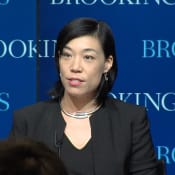
( - )
Areas of Specialization: Reproduction of Racial Inequality, Social Policy, African American Studies
Naomi Murakawa is a political scientist and associate professor of African-American studies for Princeton University. She earned a B.A. in women’s studies from Columbia University, an M.Sc. in social policy from the London School of Economics and a Ph.D. in political science from Yale University.
She is best known for her book, The First Civil Right: How Liberals Built Prison America . In her book, she argues that liberals are just as much at fault for mass incarceration in the United States as conservatives. She specifically targets Bill Clinton, Ted Kennedy and Joe Biden as advocates for policies that have led to greater rates of incarceration among minorities.
She also notes the pivot away from efforts to abolish the death penalty, in favor of broadening the scope of crimes eligible for capital punishment. These policies, in the guise of law-and-order politics, were based on a flawed premise of criminality that seemed to justify excessively punitive punishment. This book won the Michael Harrington Book Award from the American Political Science Association in 2015.
Her work on racial inequality and incarceration has received fellowships from the Robert Wood Johnson Foundation’s Health Policy Research Program and Columbia Law School’s Center for the Study of Law and Culture.
21.Henry E. Brady
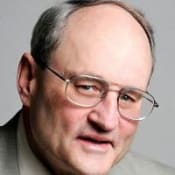
( - )
Areas of Specialization: Israeli-Palestinian Conflict, Politics of the Holocaust
Henry E. Brady is the Class of 1941 Monroe Deutsch Professor of Political Science and Public Policy and Dean of the Goldman School of Public Policy for the University of California, Berkeley. He graduated from Harvey Mudd College with a B.S. in mathematics and physics, before earning a doctorate in economics and a doctorate in political science from the Massachusetts Institute of Technology. He has focused his research on political behavior in the Soviet Union, the United States, and Canada, with an emphasis on the impacts of public policy.
He has done a lot of work to evaluate and improve U.S. voting systems, advocating for their implementation via his writing and public policy work. He was consulted for the “hanging chad” debacle known as the Bush/Gore presidential election in Florida, and the prohibition of the use of punch card ballots in California.
Brady served as the president of the American Political Science Association from 2009 to 2010 and was named a fellow of the Society for Political Methodology and the American Association for the Advancement of Science. He was recognized by the Society for Political Methodology in 2012, when they honored him with their Career Achievement Award.
See our Interview with Henry Brady
22.Denise Walsh
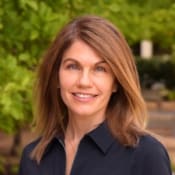
( - )
Areas of Specialization: Gender Politics, Human Rights
Denise Walsh is a professor of political science and women, gender and sexuality for the University of Virginia, and co-founder of the Power, Violence and Inequality Collective. She earned a B.A. in politics and economics from Bennington College, an M.A. in political science from Columbia University, and a Ph.D. in political science from the New School for Social Research. During her studies at the New School, she was recognized with the Hannah Arendt Award in Politics. She was awarded a 2007 Best Dissertation Prize in the Women in Politics Research Section of the American Political Science Association.
Her area of expertise is the study of relationships between politics and women’s rights. Her book, Women’s Rights in Democratizing States: Just Debate and Gender Justice in the Public Sphere , found that democratization does not have a correlative relationship with the participation of women in politics, in part due to efforts to impede their participation. She continues to write and publish articles exploring these themes in publications such as PS: Political Science & Politics, Comparative Political Studies, and Politics & Gender. She served as president of the Women’s Caucus for Political Science in the American Political Science Association. She is currently providing editorial leadership for the American Political Science Review, a role she will hold until at least 2024.
23.Francis Fukuyama

(1952 - )
Areas of Specialization: Developing Nations, Governance, International Political Economy, Nation-Building and Democratization, Strategic and Security Issues
Francis Fukuyama is director of Stanford University’s Ford Dorsey Master’s in International Policy and Mosbacher Director of the Center on Democracy, Development and the Rule of Law, as well as a senior fellow for the Freeman Spogli Institute for International Studies. Fukuyama earned a B.A. in classics from Cornell University and a Ph.D in political science from Harvard University. He has been involved with the Telluride Association, a high school outreach program, since he was an undergrad at Cornell University.
Fukuyama is best known for his book, The End of History and the Last Man, in which he suggests that democracy and capitalism represent the achievement of the end goal of human sociocultural progress. He has also been an active commentator on political and world events, having been critical of the militarism of the George W. Bush administration. He has advocated instead for strategic management of relationships with other countries, seeking to stimulate development of infrastructure and democratic governments by way of education, and financial help.
He is a co-founder of The American Interest, for which he now serves on the editorial board. He is a fellow of the World Academy of Art and Science and sits on the board of Global Financial Integrity.
See our Interview with Francis Fukuyama
24.Mala Htun
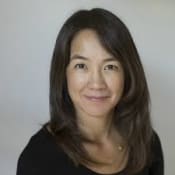
(1970 - )
Areas of Specialization: Comparative Politics, Political Inclusion, Gender Equality
Mala Htun is a professor of political science at the University of New Mexico. She earned an A.B. in international relations from Stanford University and an A.M. and Ph.D. in political science from Harvard University.
She taught at the New School for Social Research and Eugene Lang College for over a decade, during which time she was a fellow of the Radcliffe Institute for Advanced Study at Harvard, at the Kellogg Institute for International Studies based at the University of Notre Dame, and a Hitachi International Affairs Fellow at the Council on Foreign Relations.
Her dissertation won the Best Dissertation Prize from the Women and Politics section of the American Political Science Association. She has written three books regarding gender issues, Sex and the State: Abortion, Divorce and the Family Under Latin American Dictatorships and Democracies , Inclusion without Representation: Gender Quotas and Ethnic Reservations in Latin America , and The Logics of Gender Justice: State Action on Women’s Rights Around the World , which was awarded the Human Rights Best Book Award from the International Studies Association.
Her work on gender politics and women’s economic agency has resulted in significant contributions to our understanding of how public policy impacts women specifically. For this work, she was named an Andrew Carnegie Fellow in 2015.
25.Kathleen Thelen

( - )
Areas of Specialization: Comparative Politics, Industrial Relation, Capitalism
Kathleen Thelen is the Ford Professor of Political Science at the Massachusetts Institute of Technology and a permanent external member of the Max Planck Institute for the Study of Societies. She earned a B.A. in political science from the University of Kansas, and an M.A. and Ph.D in political science from the University of California, Berkeley.
A scholar of comparative political analysis, she has extensively studied industrial relations, democracy, and political-coalitional foundations for capitalism. Her research has won a number of awards. How Institutions Evolve: The Political Economy of Skills in Germany, Britain, the United States and Japan won the Mattei Dogan Award of the Society of Comparative Research. Varieties of Liberalization: The New Politics of Social Solidarity received the Barrington Moore Best Book Award from the American Sociological Association’s Section on Comparative and Historical Research.
Thelen has served as Chair of the Council for European Studies, President of the American Political Science Association, and President of the Society for the Advancement of Socio-Economics. Most recently, she has been awarded the Aaron Wildavsky Enduring Contribution Prize and the Michael Endres Research Prize. She now focuses her research efforts on better understanding the American political economy.
See our Interview with Kathlene Thelen.
Honorable Mentions in Political Science
- Robert D. Putnam, Harvard University
- Sarah Birch, King’s College
- Nadia E. Brown, Georgetown University See our Interview with Dr. Brown.
- Michael Cox, London School of Economics
- Lee Epstein, Washington University of St. Louis
- Sergio Fabbrini, Libera Università Internazionale degli Studi Sociali Guido Carli
- Johan Galtung, Peace Research Institute Oslo
- Robert E. Goodin, Australian National University
- Michael Hanchard, University of Pennsylvania
- Jennifer Hochschild, Harvard University
- Duncan McCargo, University of Leeds
- Bruce Bueno de Mesquita, New York University See our Interview with Dr. Bueno de Mesquita.
- Larry Sabato, University of Virginia
- Rogers Smith, University of Pennsylvania See our Interview with Dr. Smith.
- Harris Mylonas, George Washington University See our Interview with Harris Mylonas